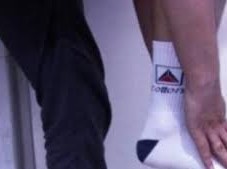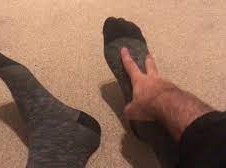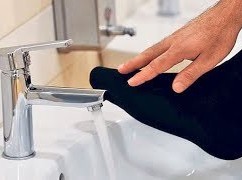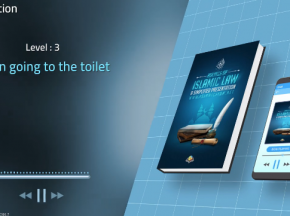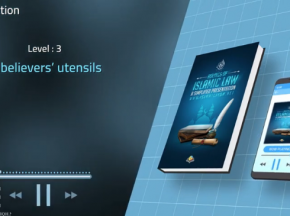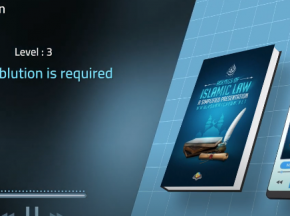content of level
Conditions making wiping over the khuffs invalid
Wiping over khuff during ablution is a form of Islam easiness when it is hard to remove it or its likes. But some conditions make it invalid like; time limit and feet exposure. More cases are clarified in this article.
How to wipe
Wiping over the kuffs is permitted instead of removing it during ablution. The Prophet (PBUH) used to wipe over the top of his khuffs, and if one wipes over the back or the bottom of his khuffs; wiping is invalid.
Conditions for wiping over the khuffs
Instead of removing your socks or khuffs during each ablution, one can wipe over it. But there are some conditions and rules to be followed so the wiping is valid. This article discusses these conditions in details.
What is purification?
What is purification
The importance of purity
The importance of purity.
When going to the toilet
More than one hadith clarify what should be done when going to the toilet. Entering with the left foot and leaving with the right one is recommended, as well as saying some prayers and other points discussed below.
Unbelievers’ utensils
Muslims are allowed to use unbelievers’ utensils after being cleaned from any impurity. It is also permitted to eat from earlier religions people food. The Prophet himself accepted a Jew invitation to a meal.
When ablution is required
Wudu means cleanliness and brightness. But in Islam it refers to washing the face, arms, head and feet with clean water. In other words it is called ablution. It is obligatory before prayer or similar worship acts.
Wiping over the khuff
Wiping over the khuff.
Conditions for wiping over the khuffs
Conditions for wiping over the khuffs.
Conditions making wiping over the khuffs invalid
Conditions making wiping over the khuffs invalid
Facing the qiblah when relieving oneself
Facing the qiblah when relieving oneself.
How to wipe
How to wipe?
What is reprehensible when relieving oneself
Some acts are reprehensible when someone is relieving himself such as talking to anyone or to urinate over a crevice in the ground. It is also reprehensible to urinate facing wind direction if it is in an open area.
What invalidates the ablution
There are some things that make ablution invalid; such as any discharge from private parts and this applies to stool, urine, semen, blood and wind. Also Deep sleep and touching one’s private parts break ablution.
What is istinja
What is istinja?
What about using river water for doing wudu?
What about using river water for doing wudu - Shiekh Assim Al-Hakeem.
Using the toilet and its manners
There is an etiquette that must be followed when using the toilet. Islam has described how one should take care of his personal hygiene.
Unbelievers’ utensils
The primary ruling is that these are permissible to use. However, if it is known that they are contaminated with impurity, then they may not be used until they have been washed.
Types of water
The water that ensures purification is called tahur, and it is defined as pure and purifying. It is every type of water that retains its original state as it is created, whether it falls from the sky, such as rainwater, snow, and hail, or comes up from the earth, such as the water of rivers, springs, wells, and seas

